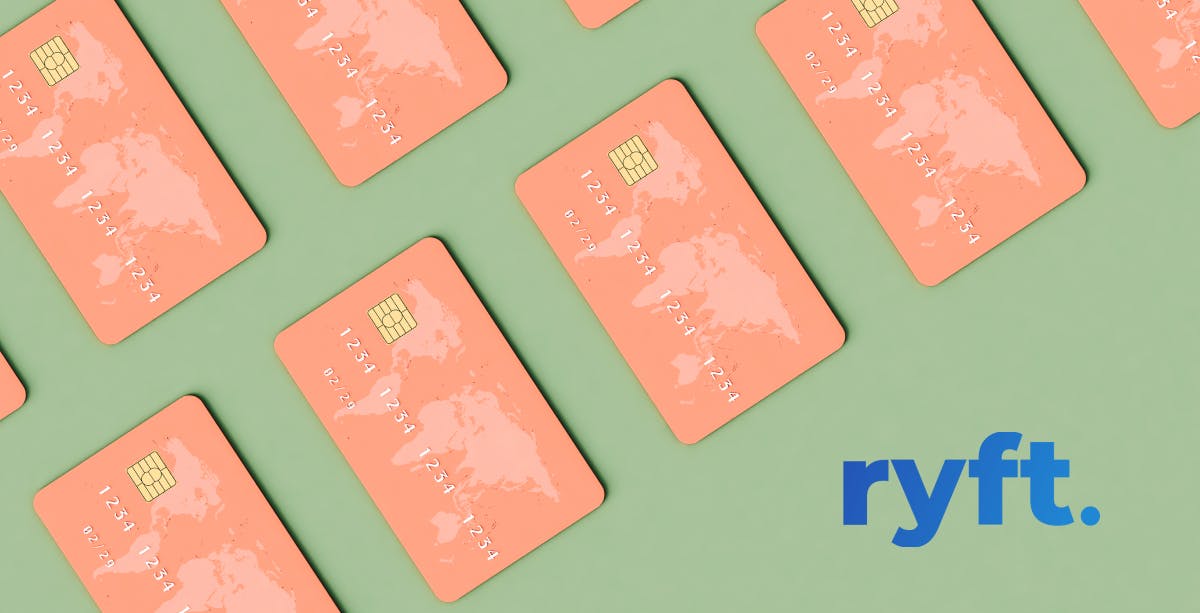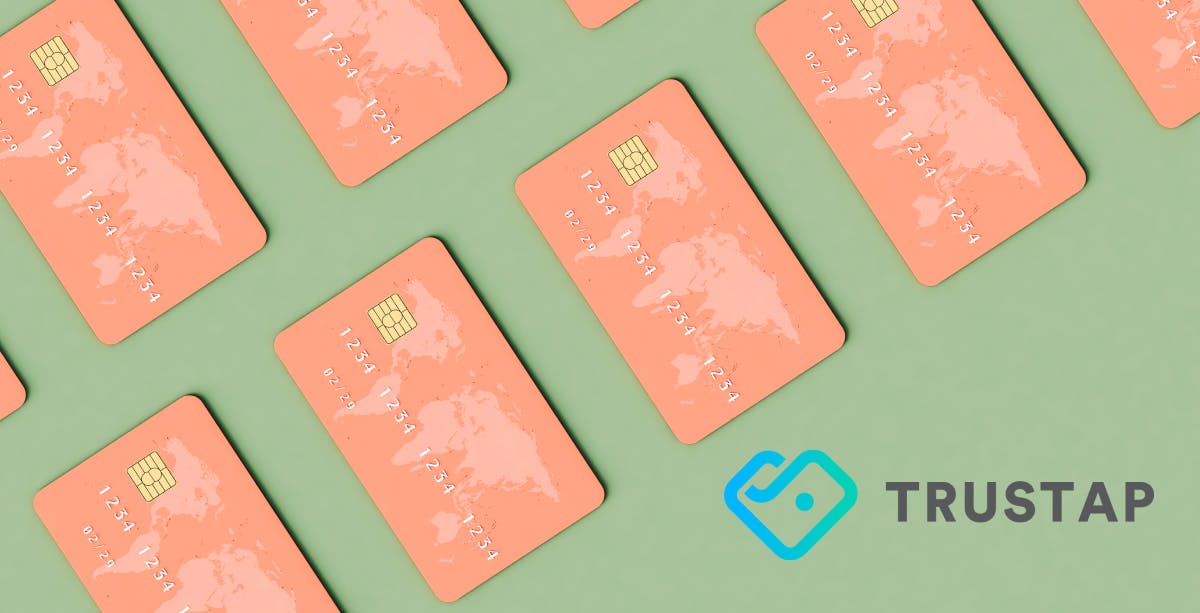Ryft marketplace payments—overview of key features
Are you considering Ryft to power your marketplace payments? Here's a detailed overview of Ryft's pricing, key features, and more.
Published on
Last updated on

As a marketplace founder, few decisions are as important for your tech stack as choosing a reliable marketplace payments solution.
Ryft is a payment provider that offers a purpose-built payment platform for online marketplaces. But is Ryft the right solution for your business?
In this guide, we will review Ryft's key features to help you decide if it's the right fit for your marketplace business.
Key points in this article:
- Background information on Ryft: Founders, valuation, competitors, and well-known marketplaces using Ryft.
- Ryft’s key features: Ryft's pricing, countries and currencies, key payment flow features, and security tools.
- Ryft’s customer support and ease of integration.
Ryft was founded in 2019 by Sadra Hosseini and Alex Mackenzie, entrepreneurs who previously built their own online marketplace business—Butlr, a mobile ordering platform for pubs and bars.
The business grew rapidly during the pandemic, reaching over a million customers and 500 active venues, after which OrderPay acquired it.
Before their exit, Hosseini and Mackenzie identified a crucial missing piece in the marketplace ecosystem: a suitable payment processing solution specifically designed for the marketplace model.
Drawing on that first-hand experience, the co-founders created Ryft to solve the payment challenges they faced as marketplace founders. In other words, they experience their users' pain points and challenges first-hand.
The company is headquartered in London. Here are some key metrics to know about Ryft:
- Ryft has over 100 marketplace customers serving 100,000+ users across various niches and business models.
- The company has raised over $10M in total funding.
- Ryft’s best-known investors are SFC Capital, Ingenii Capital, Lorenz Bogaert, and Edward Lando.
- Following Ryft's Series A funding round, the company is valued at £100 million with sights set on their Series B round for 2026.
While Ryft does not publicly disclose transaction volume numbers, the company's client base operates globally across multiple currencies and payment methods.
Ryft isn't alone in this niche, it operates alongside some major players.
Here are some of Ryft's key competitors:
You can build a custom integration into Sharetribe-powered marketplaces with any third-party payment provider you want, including Ryft. If you're looking for out-of-the-box solutions, Stripe Connect is currently the only provider available in Shartribe's no-code builder.
Here's an article that helps you compare the different marketplace payment providers.
Every marketplace payment provider has its strengths and weaknesses. The key to choosing the right partner is to select the one that provides features that truly benefit your users.
While Ryft is relatively new in the market compared to its competitors, it has over 100,000 users already and powers marketplaces across the UK and Europe. Ryft's strength is its focus on marketplaces and platforms, which allows it to offer many powerful features for this use case: seller onboarding and verification, a complete split payments feature, omnichannel payment processing, unlimited escrow and subscription payments, and a simple fee structure.
Important to note: Ryft doesn't currently support marketplaces outside of the UK and Europe. There is also a monthly minimum fee with Ryft that might be a blocker for pre-revenue or very early-stage marketplaces.
Let's examine some of the key features that Ryft offers marketplaces.
Ryft’s pricing is straightforward. Unlike Mangopay, they do not have set-up fees, integration fees, or closure fees.
At a high level, Ryft's pricing involves just two simple fee components:
- Transaction fees: Ryft's transaction fees combine a low percentage rate based on volume and a fixed fee of <1% + £0.10 (volume-based). For example, a £100 transaction might incur a £0.90 fee.
- There's a minimum monthly charge of £1,000. There are no additional fees for the setup, services, or payouts.
The low, flat-rate transaction pricing with no separate markups on payouts makes Ryft particularly cost-effective for high-volume marketplaces or those with larger average transaction sizes.
However, the £1,000 minimum monthly fee might also be a disadvantage for very early-stage marketplaces.
Ryft does offer a flexible option to adjust the transaction percentages and fixed monthly fees based on each marketplace's unique transaction flows, volumes, and more.
Before choosing the payment platform for your marketplace, you must consider whether it:
- Lets you onboard and pay sellers in the countries you serve
- Accepts currencies from your target markets
- Offers popular payment methods in those countries.
You need all three to offer a sufficiently good payment experience.
Generally, for any marketplace operating across geographies and user bases, it is crucial to have wide coverage of countries, currencies, and locally preferred payment methods.
Here's what you should know as a marketplace founder about Ryft's features in these areas:
Ryft currently supports marketplaces operating across the UK and Europe, while enabling them to onboard sellers and sub-merchants globally. This means your platform can operate internationally, accepting buyer payments in multiple currencies and paying out to sellers wherever they are based.
Payouts are just as important as processing inbound payments. Marketplaces need a way to reliably pay earnings to their sellers and service providers.
Ryft enables flexible and reliable payouts with automatic and manual payout options supported globally. Merchants can select which bank account to use, as well as set default currency accounts for faster settlement.Currencies
When buyers and sellers transact across borders, being able to accept and send payments in each party's local currency helps minimize friction. This multi-currency support reduces costs for cross-border transactions.
Ryft's supported payment and payout currencies include:
- British Pound Sterling – GBP
- Euro – EUR
- United States Dollar – USD
- Australian Dollar – AUD
- Canadian Dollar – CAD
- New Zealand Dollar – NZD
- Swedish Krona – SEK
- Norwegian Krone – NOK
- Danish Krone – DKK
- Romanian Leu – RON
- Hungarian Forint – HUF
- Polish Złoty – PLN
- Czech Koruna – CZK
- Swiss Franc – CHF
- South African Rand – ZAR
- Hong Kong Dollar – HKD
- United Arab Emirates Dirham – AED
- Japanese Yen JPY
Your marketplace should offer locally trusted or globally accepted relevant payment options in each geography to maximize conversion rates.
Ryft covers the major payment methods, including:
- Credit/debit cards
- Apple Pay
- Google Pay
- American Express.
This is a somewhat smaller list than Ryft’s larger competitors support, but Ryft has shared with us that adding Alternative Payment Methods, including Sofort, iDEAL, and Blik, is on the roadmap.
Most two-sided marketplaces monetize through commissions, which means that the marketplace takes its cut out of each transaction it processes.
While it’s technically possible to split your payment manually, it can be very time-consuming and stressful, especially for a large number of transactions. More importantly, such a workaround can be illegal.
Split payments are a core reason we recommend that marketplace founders select a payment provider partner that specializes in marketplaces or has a dedicated marketplace offering. Many general payment providers don’t support this feature, but for most marketplace founders, split payments are non-negotiable.
Ryft has a native split payment feature that lets you define custom split ratios and rules for your marketplace transaction flows and business models. You can split payments flexibly by percentage, fixed amount, or a combination. You can charge your commission from the seller, the buyer, or both, and charge different fees from different user groups (smaller fees from power sellers, for example).
Online marketplaces like Upwork, Airbnb, Vinted, and others hold a buyer's payment before paying the seller. Once the buyer has indicated that they’ve received the item or service they purchased, the buyer’s payment is sent to the seller (with the marketplace’s commission deducted).
In the same way, you likely want to protect buyers and sellers on your marketplace by holding funds in escrow until the transaction is complete. This prevents fraud and manages disputes related to unfulfilled tasks or orders, helping establish trust between sellers and buyers.
Ryft offers an unlimited escrow system. The platform lets you hold buyer payments in escrow based on your own schedules and conditions.
This means that there is no maximum length of time funds can be held in escrow with Ryft. Payouts can be delayed for days, weeks, or months—whatever timeframe your marketplace requires. However, extended escrow periods may require additional compliance reviews.
Interestingly, Ryft can actually pay interest on funds being held in segregated escrow accounts rather than letting that money sit idle. This creates an additional revenue stream for marketplaces holding large escrow balances.
It’s notable that many of Ryft’s competitors don’t have an official escrow license and have a much more limited delayed payouts feature. Comparing marketplace payment providers, only Ryft is one of the only providers that offers unlimited escrow to our knowledge.
Overall, this feature lets your marketplace:
- Build trust with buyers and sellers
- Reduce risk for buyers
- Ensure sellers get paid promptly after successful deliveries.
Subscription payments let you automatically charge customers for using your service or product over time. The system securely saves buyers' payment details and bills them at regular intervals, e.g. monthly, quarterly, or annually.
Ryft's payment platform has a subscription management feature to handle subscription payments. You can configure and automate recurring subscription fees from buyers and sellers to access the marketplace platform itself.
Ryft also lets your third-party sellers directly bill their own subscription fees to customers. The marketplace can then automatically deduct their cut as a commission on each subscription charge.
Overall, the Ryft's subscription model lets you:
- Charge a subscription fee from your users.
- Let your sellers charge a subscription fee from their customers.
- Save the shipping details for the purchase/payment.
- Identify and cancel a specific subscription by ID.
- Set automated recurring billing on specified dates.
Since you’ll be handling payments and financial transactions, security and compliance are vital aspects to consider.
Ryft provides major security and compliance features to ensure the safety and integrity of marketplace transactions.
Here are the security features of the Ryft marketplace payment system:
- Onboarding and KYC/AML identity checks: Ryft handles all Know Your Customer (KYC) identity verification and Anti Money Laundering due diligence for marketplace users. This can be fully white-labeled and customized to your brand experience, or partly white-label and partly hosted.
- 3D Secure 2: Ryft supports the latest 3D Secure 2 protocol, the primary card authentication method for complying with European Strong Customer Authentication (SCA) requirements.
- Anti-fraud and monitoring checks for each transaction end to end: Ryft uses fraud monitoring regulations to minimize fraud risk and marketplace financial crime.
- Regulatory compliance: As an Electronic Money Institution regulated by the UK's Financial Conduct Authority (FCA), Ryft complies with all relevant regulations, including PCI DSS, PSD2, and more.
Under the hood, Ryft's technical standards for protecting all sensitive payment data meet the highest PCI Level 1 certified standards.
As a marketplace owner, you might need to report your seller’s income to tax officials. For example, the DAC7 directive requires yearly seller data reports from marketplaces in the EU. Hence, you need a system to track and report earnings properly for tax purposes.
Ryft provides a centralized dashboard with full visibility into all payment transactions, fees collected, payouts made, and other relevant financial data for the marketplace itself. This allows platform operators to easily access the information needed for their own tax filing and reporting requirements.
Since Ryft is headquartered in the UK, the new tax regulations require marketplaces to report on the activity of third-party sellers using its platform.
As a result, Ryft also captures all the necessary data around seller identities, product or service transactions, and payouts received. This distributed seller data can be compiled into tax forms and reports to share with relevant authorities.
While Ryft does not have a dedicated tax tool for platform Tax calculation like Adyen, having a centralized dashboard with full visibility can help reduce the compliance burden.
One last important factor to consider is the ease of integrating a payment provider and communicating with them when issues arise, especially for solo founders or small teams with limited resources. A smooth integration process can save a considerable amount of time and resources.
At Sharetribe, we don't have first-hand experience with Ryft. (Sharetribe-powered marketplaces have a Stripe Connect integration out of the box, but founders can build a custom integration to any third-party service.)
Overall, our general experience is that agile players often excel in this aspect. They can have a much closer relationship with their customers and often have simple APIs that are easy to grasp.
Ryft’s focus on marketplaces and the founders’ background as marketplace entrepreneurs means that your interaction with the Ryft team starts from a shared understanding of how marketplaces work.
Ryft’s developer documentation and API reference are clear and well-structured. In addition to the documentation, Ryft has told us that during the integration, a customer has open comms with their UK-based development team. Ryft also offers regular calls to provide guidance throughout the integration.
Ryft was founded by entrepreneurs who previously built their own online marketplace and struggled to find an ideal payment solution for that business model. Drawing on that first-hand experience, they created Ryft as a payments platform built specifically for the needs of multi-sided marketplaces.
When it comes to core features, Ryft covers everything that marketplace operators require. This includes split payments, omnichannel payments, subscription billing, delayed payouts with escrow options, and more. Their geographic coverage currently spans the UK and Europe and the ability to pay out to US sellers. Major global currencies and payment methods are supported.
On the pricing front, Ryft aims for simplicity and flexibility. Their fees consist of a relatively low percentage plus a fixed transaction fee—no markup on payouts or other hidden costs. While they have a minimum monthly charge of £1,000, they offer customized pricing for each marketplace's unique volumes and model.
Perhaps Ryft's biggest strength is its founder's perspective and deep focus on marketplace needs. When we contacted Ryft about creating this article, they told us: "We know the pain points and challenges first-hand, and this flows through our entire approach—our product philosophy, our operations, and our technical implementation."
For marketplace entrepreneurs seeking a payments partner in the EU and UK, Ryft is a strong alternative to Stripe and Adyen that's worth exploring.
Thank you to Dom Mackenzie from Ryft for contributing the key facts about Ryft's offering.
More articles for you...

Marketplace payments: The complete guide
Marketplace payments are very complex. This guide helps you list your feature requirements and compare and choose the best marketplace payment provider for you. (Yes, there's a comparison table!)

Trustap marketplace payments–overview of key features
Is Trustap the right marketplace payment partner for you? Here's an overview of Trustap's key features, pricing, support, and more.

How to prevent marketplace leakage (and keep payments on your platform)
How to solve the most daunting challenge of the marketplace business model: platform leakage.
Start your 14-day free trial
Create a marketplace today!
- Launch quickly, without coding
- Extend infinitely
- Scale to any size
No credit card required
